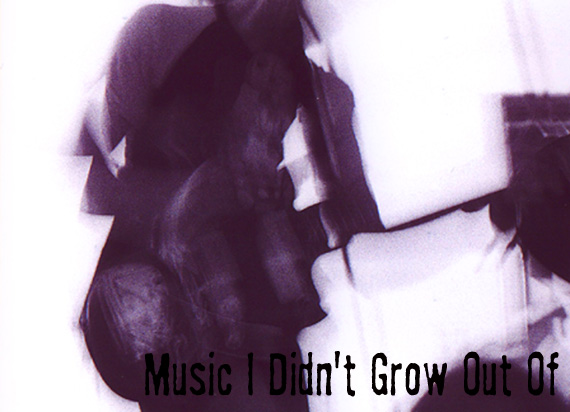Somewhere in the fall of 2005, my friend Nic blew back into town from a summer spent treeplanting, where he'd fallen in love and, quite recently, had his heart broken. He showed up at my house with an expression of despondency and surrender.
"I have something you should listen to," I said. I put on "All I Could Do Was Cry," by Tina and Ike Turner & the Ikettes. He was silent for all of the song's five minutes; when it ended he said, "That didn't help! It made me feel ten times worse! It was like being raked over coals! ...can I have a copy of that?"
Nic's reaction to the song can't be uncommon-- the most intense soul number I've ever heard, gut wrenching where others would have made it theatrical, it's a little like having a young, muscular Tina Turner punch you over and over in the stomach, in the most desirable way possible. Turner renders physical the emotional agony she's describing, making it grueling and raw. It's real and it hurts.
With only the tiny flourish of two warmup piano chords as introduction, the song begins instantly with a lyrical suckerpunch:

I heard church bells ringing,
And I heard the choir singing.
You know I, I saw my love walk down the aisle...
...and on her finger, he placed a ring.
And it isn't sung, exactly: from the growling, breaking first note, Turner, at the beginning of her career, delivers the lines as a frantic howl of misery. What could have been a standard soul lament of watching one's true love marrying someone else--as the song was no doubt intended when Berry Gordy and Billy Davis wrote it for Joe Tex--becomes in Turner's retelling an emotionally explicit tour of despair that stares down the listener until he recoils in fear.
Instrumentally, the song is backed by a tense, sharp snare, its brittle treble counterbalanced by the electric bass that carries the majority of the song's melody around which Turner writhes, tortured, in and slightly out of tune. Elsewhere there's a piano, a little farther off, and even more distant are some horns and the lovely swell of the Ikettes singing backing fills. From time to time the instruments and singers take over in volume, rising madly to crescendo only for short, intense bursts that springboard Turner's soaring voice. The whole of the song is perfect-- the instruments are martial in their practice and execution and their timing and arrangement is almost otherworldly. Throughout Turner occasionally allows herself to drift into desperately soulful melody, but she's just as willing to scream in scorched agony. That voice--at its extremes as stinging and raw as a picked scab--is the beginning and end of the song.
Turner recounts attending the wedding of her lost love and glowering at the bride "standing there with my man," before finally concluding in breaking anguish, "All I could do was cry, because I was losing the only man I had ever loved." Swinging between resolve, gloomy capitulation, and screaming rage, she recalls with disbelief the humiliation at the end of the wedding, at which time the groom approached and benevolently informed her, "Tina darling, even though we are apart, I always reserve a certain little spot in the corner of my heart..." The feelings here are not put-on blues or affected desperation. When Turner spits, "In the corner of his heart? I want to know, what did he think was in the corner of my heart?" her bitter wrath is honestly brutal.
There is certainly something about this song that feels like being beaten, in all senses of the word-- when you get past the feeling of having been punched you're left nonetheless with a sensation of sympathetic defeat. You feel as bad as Turner does and there's nothing you can do about it. "All I Could Do Was Cry" captures, like few songs before or since, the utter frenzy of real heartache, the toxic speedball of pain and rage that tangle one another and can't help but turn inward. Each play of the song subjects the listener to the feeling of trying to help a friend through the earliest, craziest stages of a broken heart, the point at which there's nothing you can say and all you can hope to do is keep your friend from physically harming herself or the person that hurt her.
The whole point of the best soul music is that it feels genuine, organic, and true, and while no one would dispute that of such matchless figures as Otis, Ray, Aretha, and Pickett, those performers all maintain a particular professional reserve. They may sound sad, regretful, lost, lonely, pensive, and humble, but rarely do they sound like they're going to require sedation. Tina Turner, here, does. This is as deep as deep soul gets. Immediate and unhinged, she makes the song into something more than soul, more certainly than pop-- in her voice it's a fierce-eyed declaration delivered with a clenched fist, and she's going to make you feel the same pain.




